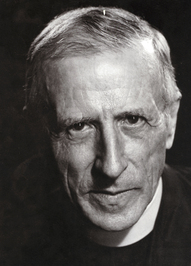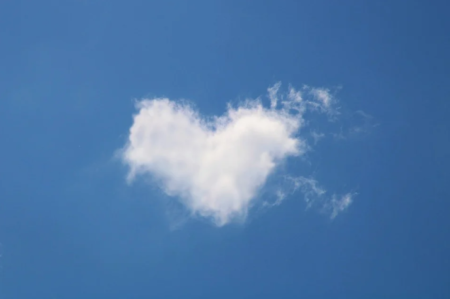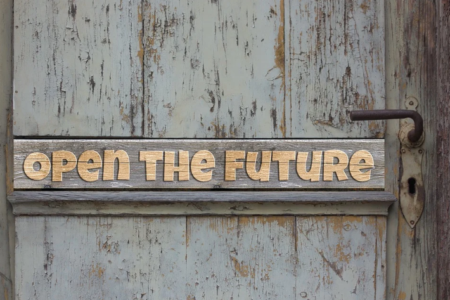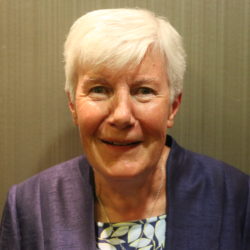To be alone with God in this world of men.
God as source and strength and term in everything.
To hand to Him our life, our being.
To be in the palm of His hand as his instrument.
To bring to Him a heart to be in his love steeped utterly
To return saturated in life Divine
In the Spirit loving all with the very love of Christ.
Sheer Liberty.
To see all things in naked essence true reality
To see God in all and all in God eternally.
As a branch of the Vine to be to the Vine belonging /utterly.
Obediently still and yielding neath the pruning hand,
Being as He wills a slave to his designs consenting freely.
The very life of Christ and I a frail human being.
O Christ live this your life in me.
During the early weeks of the outbreak of COVID-19, as I was cocooning, actually enjoying an unplanned sabbatical and having more time to ponder on my life journey than I had in the year of my Golden Jubilee (busy as I was about many things like changing home, moving to a new and very different ministry) I received a copy of the above words in a What’s App message. I learned to my great surprise, that I myself was the author, having typed them and given them to a Novitiate companion as we started our retreat leading to First Profession, fifty one years ago. She had come upon them in the course of a decluttering project facilitated by the lockdown!

I was transported back to meet my twenty one year old self, as I awaited with longing and delight my total surrender to God through the Religious Vows. I was pleased to be so unexpectedly put in touch again with my youthful enthusiasm and with my articulation of my heart’s desire all those years ago.
What follows is something of a revisiting of the sentiments and themes shared with my companion back in 1969 in the light of my life experience since then.
I was somewhat embarrassed initially on reading again the opening ten words; firstly I had to take on board that I had been unquestioning, indeed comfortable, with using the word ‘men’ when I presumably meant women as well. I further recalled that later, as a College student, I had in my room a poster I had made with my own hands which had the quote ‘the man too busy to pray is just too busy’, and which I had positioned to greet me on awakening each morning! That was as far as my knowledge of inclusive language went in those days and does not of course take from the relevance of the message, attention to which too often eluded me in later times.
Also I wondered did the opening words of my reflection betray vestiges of the ‘fuga mundi’ spirituality which, I had often told myself – and others – had been abandoned by the time we, the first post Vatican II generation, were in a Formation programme. Was there even a presumption that I could avail of a direct route to God, like a sort of underground tunnel or sky rocket that insulated me against ‘the world outside’?
 Pierre Teilhard de Chardin
Pierre Teilhard de Chardin
Our novitiate group were very familiar with the documents of the recent Council; ‘Lumen Gentium’, its reflection on the Church in the modern world, struck a new positive note, an embracing of the concerns, hopes, fears and joys of humankind. The writings of Pierre Teilhard de Chardin, who had brought science and mysticism together, breaking down the dichotomy between the material and the spiritual, asserting that ordinary matter was the locus of the Spirit, had been circulating and were slowly gaining acceptance. I had read a few of Teilhard’s books; even though the scientific language and concepts were strange to me I resonated with the vision of an evolving, integrated creation and I found it exciting and liberating. I am reminded that in those days I used often to declare: ‘Bliss is it in this Dawn to be alive and to be young is very Heaven’, paraphrasing Wordsworth.
Of course growing into an altered mindset, embracing a different vision, moving from the exhilaration of new and exciting ideas to integrating them into living, truly taking them to heart, takes time and makes personal demands. Teilhard himself was keenly aware that change takes a long time and that we need to be patient with the slow work of God.
Having accepted the stage of maturity that produced the words I shared with my Novitiate friend, I am left with a profound sense of gratitude for the opportunities for change and personal growth that life and particularly my belonging to a Religious community has afforded me.
As I moved on from the blissful naivety of my novitiate days when I did not yet appreciate the need to match my idealism with self knowledge or know how much I needed relationship with others, I was to learn over time that ‘God’s ways are not our ways’ and may be less esoteric than we imagine! The pruning that was such an appealing prospect in my dreams was not so palatable in reality; it happened through disappointments, perplexing encounters with fellow humans who saw reality differently, or humbling awareness of my own limitations, illusions and complexes. And I rarely spotted the hand of the Vinedresser, except in hindsight. I recall that others encouraged me towards recognition of the grip of my ego, and thereby directed me towards new freedoms. That growth was sometimes invited through the compassionate counsel of friends and sometimes through the justified criticism of others. An anam chara (soul friend) once responded to my litany of my personal failures and consequent disappointment with a handshake and a gentle ‘welcome to the human race’ which dismantled (temporarily) the pompous belief that I must be perfect or not be found wanting in that agenda which I had set myself as I prepared to take vows. A community member to whom I complained about lack of uptake in a ministry initiative I had planned asked, not quite so gently, ‘ Hey, whose needs are you serving?’ – a pertinent question which has served me well whenever I’ve had the wit to ask it of myself rather than continue presuming that my motives are as pure as possible and that I am, of course, ‘to his designs consenting freely’! I discovered early on that not everybody saw things as I did, or read the same books or prayed the same way.

There seemed to be a constant need to stretch further, to let go and make room for other views. I’ve also had the real joy of gaining insight, shifting my perspectives, growing into deeper levels of awareness, closer bonding and a real valuing of others in their difference – this has happened in community, in team discernment contexts and in encounters with friends.
Three years study of Theology left me with a new appreciation of the Incarnation, which at that time I thought of mainly in terms of God’s incredible accepting love of and engagement with us humans on our journey. And yet I caught myself out a few years later struggling to reconcile the demands of a busy work life with making time for what I secretly regarded as my real, more important life – spiritual reading, time at prayer, when I was growing in relationship with my (!) God.
I had yet to live out of the knowing (which I had subscribed to theoretically) that God was in the messiness of lived life, to be met in the children and adults with whom I was relating in the school situation where I ministered at that time, that ‘every encounter that brings me a caress, that spurs me on, that comes as a shock to me, that bruises or breaks me, is a contact with the hand of God’ (Teilhard in ‘Writings in Time of War’ published in 1968).

If the novitiate and the structures of community life had been in any sense an ivory tower providing insulation from ‘reality’ the new ministry opportunities that opened up as our Mercy communities refocused our mission brought me into contact with men and women and human situations which offered me the opportunity of recognizing and redressing that. In community work I met feisty women, social activists who were as persistent as the Syro Phoenician woman (whom I want to believe caused Jesus to enlarge his understanding of his mission) in seeking justice and equal opportunity for people in their local areas. They let me see what being the ‘instrument of God’ might cost in concrete situations. As Br. David Steindl –Rast puts it ‘True contemplatives are not dreamers. Their eyes hold a vision while their hands translate that vision into action’. A travelling woman to whom I handed what I had left of my monthly personal budget responded with ‘Sister, do you know what? Your little heart isn’t that size’ as she pointed to the tip of her little finger. That was her assessment of what I had thought was a magnanimous gesture! The constancy of God’s creative healing love was reflected in that of parents I met who had never given up on children who had broken their hearts.
As a member of a Congregation which earnestly strove to respond to the call to renewal of the Second Vatican Council I was taken along with my community to places we had never imagined before. My adult living has happened at a time of amazing discovery in the scientific world, a time of expanding human consciousness and, within Church circles, an awakening to the treasures of other spiritual traditions, East and West as well as to some neglected riches in our own. I have been a participant in community discussions, team discernment and Chapter gatherings where we have tried to articulate our identity and our mission in an ever enlarging framework, with growing acknowledgement of our planetary context, our connection with all living creatures and the gifts offered by other religious and cultural traditions. Abandoning treasured ways of seeing and doing in the light of new thinking did not come easy. For instance it took time and a lot of struggle for us to move from an exclusive focus on social justice towards an inclusive embracing of justice for all life forms and genuine care for the Earth. Through it all we were together opening to the wonder of an ever growing and beautiful Universe, discovering a larger God and growing in our appreciation of our connection with all living creatures.
The words ‘to see God in all and all in God eternally’ possibly tripped lightly off my tongue in 1969. I now interpret my journey of life so far – my reading, praying, working, relating – as inviting me to ever deeper awareness of the one sacred energy field of which each creature is an integral part and from which God is not separate.
The integrated vision of Creation as sacred ground has appeared within our tradition throughout the ages, in Scriptures, in the intuition of the mystics, in the insights of poetry. It has been articulated for us in recent times by gifted writers many of them from within our Catholic tradition who are open to learning from physicists and biologists. We are at a time when there is an amazing alignment between the sciences and religion. Another gift received through social media during lockdown was a reading of Einstein’s 1938 letter to his daughter in which he shared his conviction that the force that kept the Universe together was love and contained a wistful hope that a time would come when the scientific community would know this. Something beautiful is unfolding as we, believers and non believers, contemplate the unfolding story of one universe and the power of love or allurement that is at the heart of it. We are at a moment of great awakening, where the true story of the wonderful, magnificent, ever expanding Universe is widely shared. We are also left in no doubt about the interdependence of all things, too often through seeing the devastation caused by human dominance and exploitation of the Earth which is home to all creatures, by the obtuseness which causes us to miss the cues and be out of sync with the pattern of Creation. While I am very aware and distressed that we have brought Planet Earth to the brink of destruction I dare to hope that we still have time or that Mother Earth will insist that we begin to repair and restore. Despite all the darkness and the peril we are in as earthlings in our modern world we are looking towards a new Dawn. And it surely is a blessed time to be alive.

In counting the blessings of this later stage of my life I am profoundly grateful for the hope offered by ‘Laudato Si’ that people of faith can reframe the Christian story in the light of the Cosmic story that Science has been offering us, that the incarnation story will be seen as all of a piece with the Creation story, not an afterthought or redress effort, that Christianity will reclaim the transforming power that is at its heart and its relevance be more evident. I am excited by the publication of Dermot Lane’s book ‘Theology and Ecology in Dialogue’. As Sean McDonagh says in his introduction to it: ’It offers a new way of being in the world where Christians begin to listen to the cry of the poor and the Earth and therefore respond with a new, transformative Christian praxis. And finally it points in the direction of a new liturgy, where all join together in praising God for the wonders of Creation and thereby become converted to a new way of living and acting and feeling in the natural world’.
Since coming to work in the Hermitage Centre in Glendalough a little over a year ago I have met many who, like myself, have grown up in a Church that promoted dualistic thinking, separating Nature and Grace, Spirit and Matter, Divine and Human, Religious and Secular, which distrusted Science as the enemy of faith and tolerated sexuality as something of a necessary evil. There are those who seem comfortable living out of the story of Original Sin –the Fall from grace and Redemption through atonement. There are some who can no longer live within that framework or relate to the small and mean God it presents. They feel that they cannot find nourishment for their spirit within the Church and must abandon its rigid structures and constraining dogmas in order to become integrated human persons.
Sometimes I am tempted to want to fix it all for them. Use the prayer time together to give them a crash course in Creation Spirituality and the Celtic Christian tradition. Give them the books I have found so enlightening and heart-warming. (A warning bell sounds and I chuckle to recall that at the age of eight I left my Catechism of Catholic Doctrine on the table of my Church of Ireland neighbour believing that it might help her see the light and become one of us!) I know that a faith vision or personal growth are not best served by reasoning. It is a great privilege to be in a ministry that offers a quiet space and supports contemplative silence in this area of great natural beauty which has been a place of pilgrimage and carries and a tradition of seeking God. I trust to the Spirit of God alive in and through all of reality and experience to find a way to the hearts of all the retreatants and all of us and I tell myself and others:
You can’t use force or even effort
You can only create the right conditions
Reverse the beam of your attention
And make a sacred space inside.
For the secrets to flow through
And reveal themselves to you.
(Steve Taylor)
‘And the end of all our exploring will be to arrive where we started and know the place for the first time’. (T. S. Eliot)

When I wrote that reflection many years ago I was ardently looking forward to leaving the Novitiate. Now I know that I am still very much a novice in learning to ‘be still and know’ attuning to the ways of the Spirit, opening to the revelation which Creation is and letting it show me how to be and how to relate as a creature on this Earth.
Peggy Collins rsm
South Central Province


